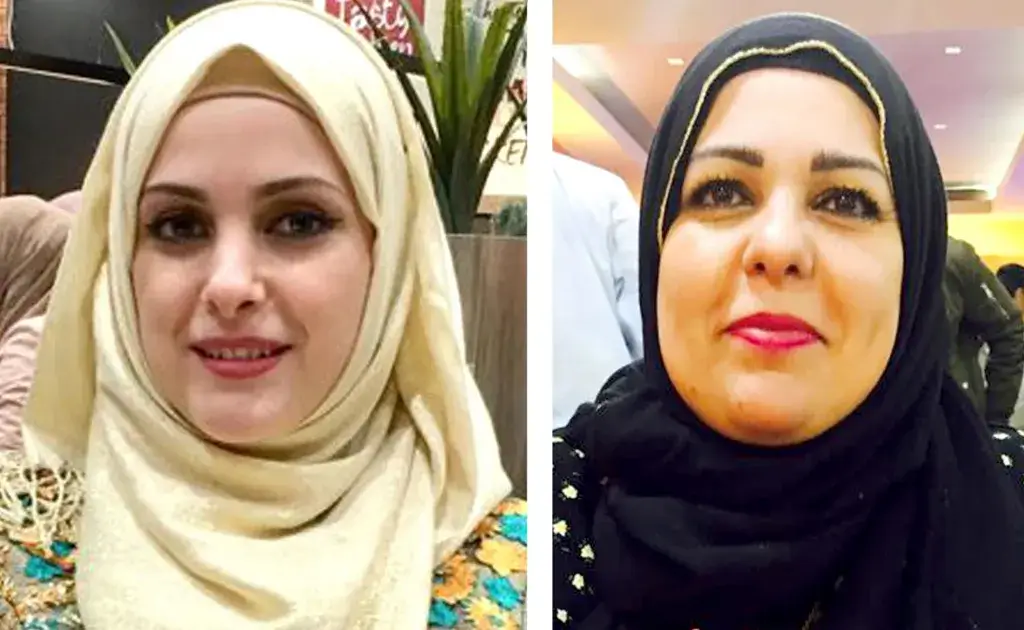When it comes to domestic abuse, time matters—like, really matters. In the UK, every hour sees nearly 100 domestic abuse-related offenses being reported to the police. And yet, despite these alarming numbers, victims still fall through the cracks. That’s why the government is stepping up with a new initiative: embedding domestic abuse specialists directly into 999 control rooms. Let’s dive into what’s behind this measure, the emotional story that inspired it, and how it aims to help victims who desperately need protection.
Raneem’s Law: A Heartbreaking Catalyst for Change
This initiative comes as part of “Raneem’s Law,” named after Raneem Oudeh, a 22-year-old woman who, along with her mother, Khaola Saleem, was murdered in 2018. The perpetrator? Oudeh’s estranged husband, Janbaz Tarin. In a devastating turn of events, Oudeh had made six 999 calls the night of her murder, pleading for help as Tarin followed her home after a public assault. Despite her repeated calls for help, police failed to intervene in time.
The murders were horrific, but they also exposed significant flaws in the system meant to protect women like Oudeh. According to an inquest, police errors “materially contributed” to the tragic deaths of Oudeh and her mother. The West Midlands Police even apologized for their role in the tragedy. The question now: How many other women are at risk because the system didn’t, or couldn’t, respond quickly enough?
A Game-Changer: Domestic Abuse Specialists in 999 Control Rooms
In response to these failures, the UK government is embedding domestic abuse specialists into emergency call centers. These experts will be tasked with offering real-time advice and support when victims call in for help, ensuring that reports of domestic abuse are given the urgency they require. Instead of being just another call in the queue, victims can expect faster police responses and quicker referrals to critical support services.
Home Secretary Yvette Cooper emphasized the importance of this new system, stating that victims “need to know the police will be there for them” when they come forward. Cooper didn’t mince words, highlighting that the failure to treat domestic abuse seriously has already cost far too many lives.
The Role of the Domestic Abuse Specialist: What’s Different?
Let’s get real for a second—too often, the system doesn’t “get” domestic abuse. The warning signs are missed, or worse, ignored. In Raneem Oudeh’s case, police were reportedly aware of at least 13 separate concerns for her safety, yet no preventive actions were taken. This is where the embedded specialists can be game-changers.
Unlike general call handlers, these experts will be trained to recognize the subtleties of domestic abuse—whether it’s emotional manipulation, stalking, or physical violence. Their presence in 999 control rooms could mean the difference between life and death. Imagine having someone on the line who understands the urgency behind every panicked breath, every hurried plea for help.
Why Not Nationwide Right Away?
Despite the urgency, this initiative won’t be rolled out across all of England and Wales immediately. Instead, the government is piloting the program in select police forces, with a full rollout expected by the end of the current Parliament. So, why the delay? According to Jess Phillips, minister for safeguarding and violence against women and girls, it comes down to a simple (and slightly frustrating) fact: there just aren’t enough specialists yet.
“You can’t invent hundreds of specialists overnight,” Phillips explained. Training is essential, and the government wants to make sure this system works effectively before taking it national. In other words, they’re making sure it’s not just another band-aid fix.
More Than Just Words: Domestic Abuse Protection Orders
But the new initiative doesn’t stop with embedding experts. The government is also introducing a new domestic abuse protection order, aiming to bring tougher consequences for abusers. Currently, police can issue temporary no-contact orders, but these last for only up to 28 days. Under the new law, orders could become indefinite, with electronic tagging for offenders and stricter penalties for breaches, including up to five years in prison. That’s right, abusers could face real consequences if they step out of line—and finally, the system will have some teeth.
The goal is to make these protection orders accessible not just to police, but to victims and charities too. The idea is to empower victims with legal protection, without having to jump through endless bureaucratic hoops.
Will It Work? Concerns and Skepticism
Despite the good intentions, some are cautious about the effectiveness of these measures. Harriet Wistrich, founder of the Centre for Women’s Justice, expressed concerns that police aren’t always quick to act on breaches of existing orders. And she’s not wrong. While Refuge, a leading domestic violence charity, has welcomed the changes, they’ve also called for more details on how these plans will be implemented. It’s one thing to pass a law—it’s another to see it enforced.
And then there’s the cultural issue. Let’s be blunt: domestic abuse isn’t always taken seriously, even by the authorities. There’s a reason why these new laws and pilots are necessary in the first place. For many victims, reporting abuse feels like shouting into a void. Changing the culture of policing around domestic abuse is going to take more than just a few new hires in control rooms.
What Comes Next? A Call to Action
As the new domestic abuse protection orders roll out and domestic abuse specialists begin their critical work, one thing is clear: it’s about time. The system has failed too many victims for too long. But this initiative gives hope—hope that the next time someone like Raneem Oudeh calls 999, the response will be swift and decisive.
If you or someone you know is experiencing domestic abuse, don’t wait. Reach out to support services. These changes may take time to fully roll out, but your safety shouldn’t have to wait.

